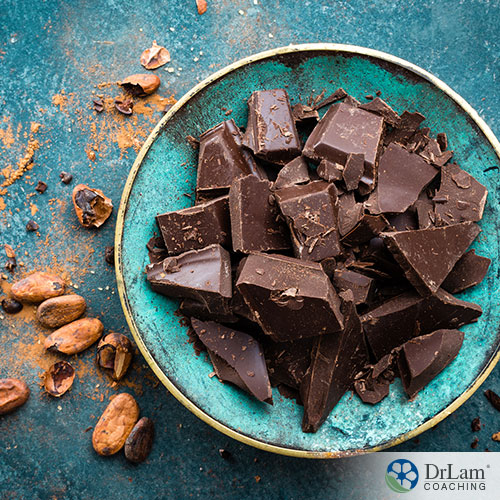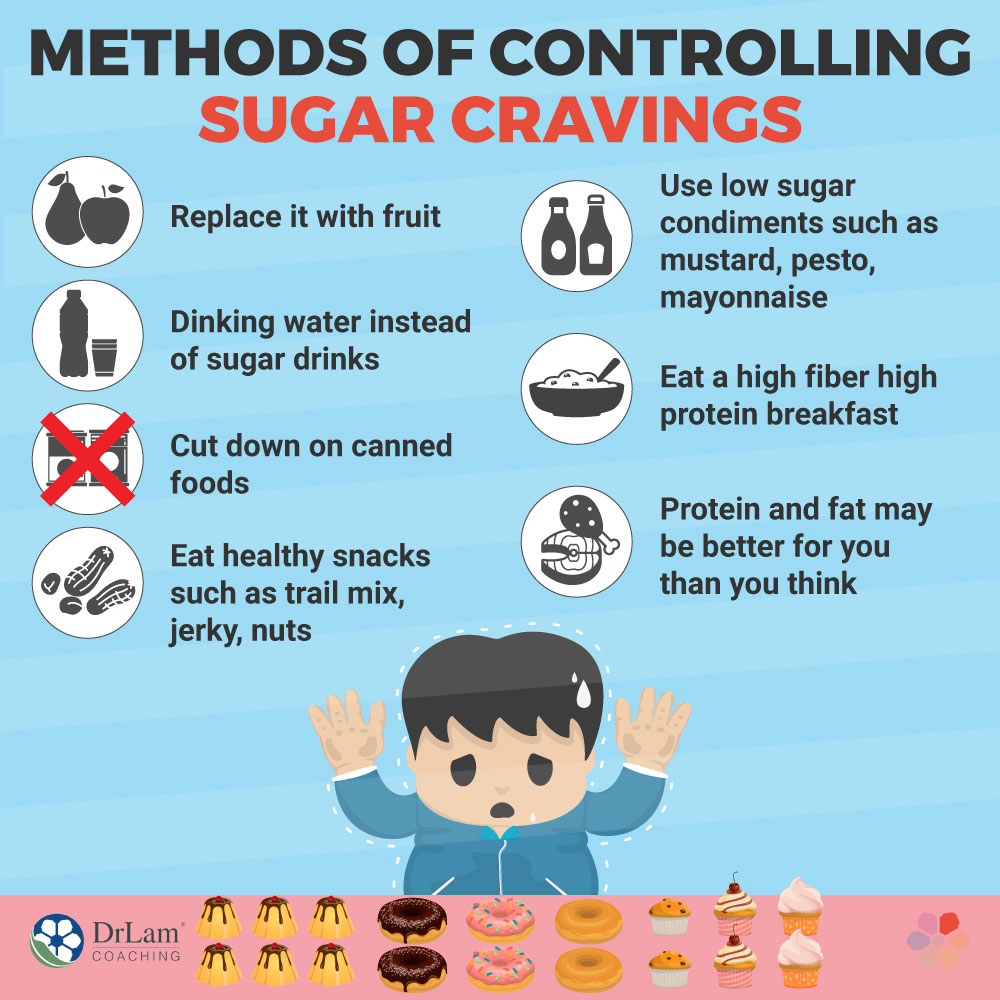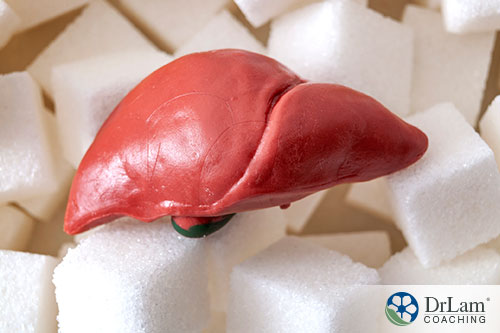 Nothing says comfort food more than a bar of chocolate when you feel down. How about when you feel the need to reward yourself for doing something well? Yep, a bar of rich, sweet chocolate does that for most of us. A cookie or two as a midnight snack seems to hit the spot. Certain foods tend to make us feel better somehow. But the truth of the matter may just be that you are addicted to sugar. However, controlling sugar cravings may be easier than you think. You just need to make a few adjustments.
Nothing says comfort food more than a bar of chocolate when you feel down. How about when you feel the need to reward yourself for doing something well? Yep, a bar of rich, sweet chocolate does that for most of us. A cookie or two as a midnight snack seems to hit the spot. Certain foods tend to make us feel better somehow. But the truth of the matter may just be that you are addicted to sugar. However, controlling sugar cravings may be easier than you think. You just need to make a few adjustments.
Our efforts toward controlling sugar cravings often fail due to the different ways our bodies become attached to the stuff.
Issues controlling sugar cravings may, to a large degree, stem from addiction. This addiction, just like an addiction to drugs, takes place in your brain and sees an immediate release of dopamine, the feel-good hormone, once you have consumed sugar. In other cases, you may become addicted to the energy rush you get from sugar. This energy rush is due to the endorphins released by your body that correlates with sugar consumption acting together with certain body chemicals and the resulting energy surge. Others may start depending on it to help them balance feelings of irritability, anxiety, and stress.
Emotional eating and a corresponding weight gain are not uncommon. Very often, people turn to sugary foods after the breakup of a long-term relationship. Turning to a tub of ice cream, a bar of chocolate, or a packet of cookies is common. It just makes you feel better. The problem, however, is using sugar consumption to deal with emotional issues can quickly become addictive. In the long run, you may see a steady increase in weight which, in turn, may hurt your self-esteem. This may lead to increased sugar consumption and thus a worsening cycle of sugar addiction.
Anxiety and depression are both associated with increased cortisol production in the adrenals. Increased cortisol is a natural response to stress and is the result of a flow of chemical messengers from the brain to the adrenals governed by the Hypothalamic-Pituitary-Adrenal (HPA) axis. The response itself is commonly referred to as the NeuroEndoMetabolic (NEM) Stress Response and is a chemical cascade that governs many organ systems and functions throughout the body. Added cortisol may also result in food cravings, especially for sugar. While the sugar may initially boost your brain’s serotonin levels, sugar consumption could ultimately end up worsening your anxiety due to a sugar low that could result in feelings of depression and even fatigue. This is common in people who suffer from adrenal fatigue.
A diet that is low in fat and protein may also result in difficulty controlling sugar cravings. Protein and fat control the release of sugar into your bloodstream. A diet low in fat and protein could result in sugar cravings as your body burns through energy too quickly and ends up in need of more.
Yet another factor that influences sugar cravings is sleep patterns. Research indicates that too little sleep or problematic sleep patterns affect those areas of your brain that control your judgment and decision-making functions. This could ultimately result in food cravings during your waking hours. Your internal body clock, or your circadian rhythm, also plays a significant role as it manages your food intake by means of hormones that suppress appetite when food is not needed. A disruption in your circadian rhythm results in a disruption in your brain’s hormone production and function, thus resulting in consequent food cravings.

The most obvious method of controlling sugar cravings is to stop eating sugar. It’s just that that is exceptionally hard to do. Controlling sugar cravings is not that simple, especially when your brain has become addicted. There are, however, many more strategic ways to curb your cravings.
 Watch your drinking habits. Popular thirst-quenchers have high quantities of added sugar. Amongst these are sodas, sports drinks, energy drinks, and even sweet tea or healthy drinks like smoothies. Your drink of choice could make up almost half your sugar consumption. Instead, opt for water. If you do not like the taste of water, add a squeeze of lemon juice, or some mint and cucumber, or herbal or fruit teas. These can be taken either warm or cold. If you feel you have to add some sweetener, consider stevia, a naturally-occurring sweet herb.
Watch your drinking habits. Popular thirst-quenchers have high quantities of added sugar. Amongst these are sodas, sports drinks, energy drinks, and even sweet tea or healthy drinks like smoothies. Your drink of choice could make up almost half your sugar consumption. Instead, opt for water. If you do not like the taste of water, add a squeeze of lemon juice, or some mint and cucumber, or herbal or fruit teas. These can be taken either warm or cold. If you feel you have to add some sweetener, consider stevia, a naturally-occurring sweet herb.Sugar cravings can have a negative effect on the hormonal balances within your body.
Stressful situations cause a rise in cortisol production due to the NEM stress response. This results in a corresponding rise in blood sugar levels in order for your body to have the energy it needs during this situation. Once the situation goes away, both your blood sugar and cortisol levels go back to normal.
Chronic stress may result in a constantly elevated blood cortisol level and a correspondingly high blood sugar level. Consuming large quantities of sugar requires increased insulin production to deal with the situation. Over time, however, your blood sugar levels will drop as it responds to the insulin. This leads to your body wanting more sugar. This could potentially result in sugar cravings.
High insulin levels could also result in the production of increasing amounts of testosterone in a woman’s ovaries. Excessive androgens in women may lead to the development of fertility issues, acne, balding, and increased muscle mass.
 Additionally, when the body is unable to use the extra sugar, it is transported to the liver where it is stored in the form of glycogen. Once the glycogen stores in the liver are full, however, the extra glycogen is stored in the form of fatty acids and lipids. This takes place predominantly around the belly area.
Additionally, when the body is unable to use the extra sugar, it is transported to the liver where it is stored in the form of glycogen. Once the glycogen stores in the liver are full, however, the extra glycogen is stored in the form of fatty acids and lipids. This takes place predominantly around the belly area.
Large quantities of sugar may also put stress on the adrenals, thereby affecting the production of cortisol, as well as aldosterone which plays a role in blood pressure control. Furthermore, it may compromise the production of thyroid hormone and thus negatively affect metabolism, body temperature control, and cognitive function.
High sugar levels may also compromise psychological health due to its effect on certain hormones and chemical messengers found in the brain. It has been linked to various mood disorders.
Controlling sugar cravings may be one of the most important things you do for your physical and mental health. By doing so, you may stave off or help improve many health conditions you may either be experiencing or be in danger of developing.
There are numerous reasons for weight gain. One of these is diet, especially one that is high in sugar. By controlling sugar cravings, or leaving sugar out of your diet all together, you may not only get your blood sugar levels under control but lose weight in the process.
